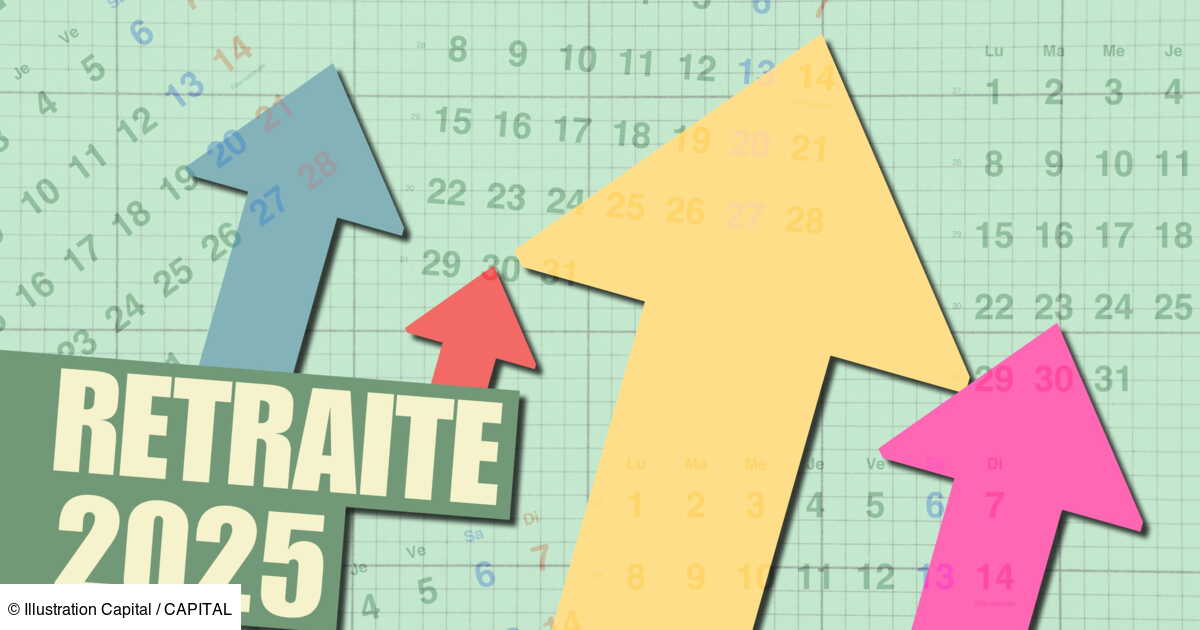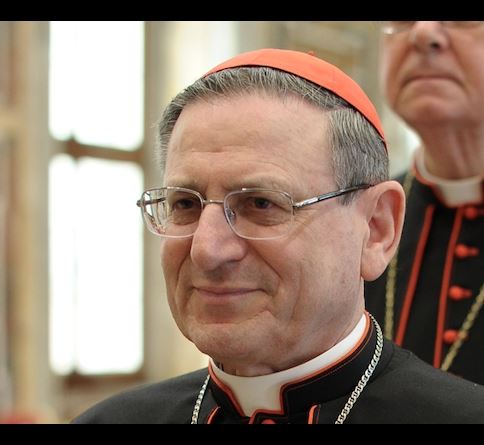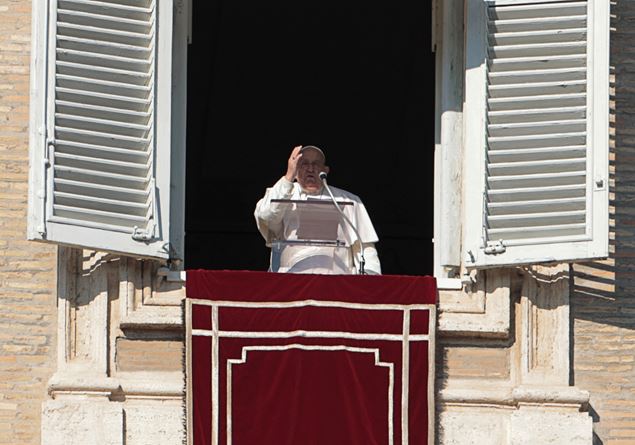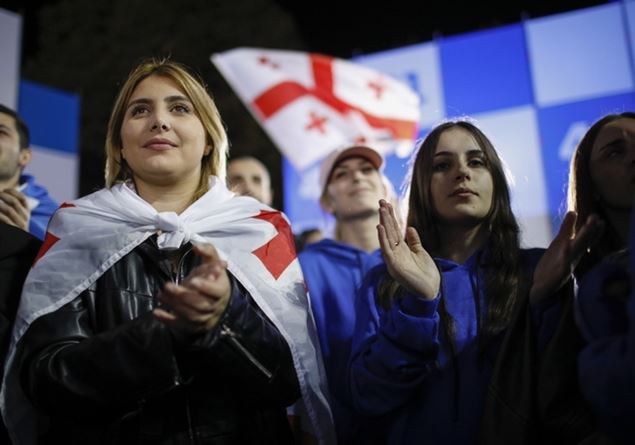
Ruska Jorjoliani was born in Mestia, Georgia, and at just 8 years old she had to run away from home with her family. First taking refuge in the capital Tbilisi. Then to Palermo, where he cultivated his passion for writing, winning the “Mondello Giovani sms-poesia” award in 2009 with a composition in Italian dedicated to Dino Campana. Neither she nor her family can return to the house where she grew up, because today she is Abkhazia. Which like South Ossetia is no longer Georgia, but has remained – in fact – under the control of Russia which fomented the separatists after the collapse of the USSR and following the proclamation of the Republic of Georgia in 1991.
Ruska Jorjoliani
«Last week in the elections won by the pro-Russian Georgian Dream party I was unable to vote because in fact I am a stateless person, like 20 thousand other Georgians, who find Russian soldiers on their way home to live. How to vote. Because we have residence there”, explains Jorjoliani. After the end of hostilities in 2008, the territories of Abkhazia and South Ossetia remained under the control of Russia, in a manner entirely similar to that of the latent conflict in Transnistria in Moldova and the one that erupted in 2022 in the Ukrainian Donbass, with Putin’s army invading the former Soviet republic.
It is precisely following that traumatic event for Ukraine, for Europe and for several “young” democracies such as that of Georgia with a past in the Soviet Union, that Tbilisi asks Brussels to become a candidate to enter the European Union. «A status that we will obtain», explains the young Georgian writer «at the end of 2023. But it is then that the governing party since 2012, Georgian dream that represented a break with the Soviet-style establishment of the first 20 years of the country’s democratic historyshows itself for what it is: contrary to this possibility. So much so that in recent months party leaders have started referring to the European institutions and the opposition as the “global war party”.
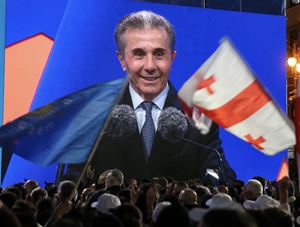
Boris Ivanishvili
Georgian Dream was founded by Boris Ivanishvili, known as Bidzina, one of the richest men in Georgia who became rich in Russia in the 1990s after the collapse of the Soviet Union and who owns both the public television station in the country and the most viewed private networks. And it has most of its financial interests precisely in Russia. «During the electoral campaign this distancing from the European Union and the now obvious rapprochement with Russia», adds Ruska Jorjoliani «was explained to the population as a need to remain neutral following the invasion of Ukraine in 2022: in recent weeks activists dThe Georgian Dream plastered Tbilisi with posters showing Ukrainian cities reduced to rubble alongside idyllic Georgian landscapes, reading “Choose peace, not war”. A dirty and unethical propaganda action that plays on the physical and psychological scars that we have from my generation of thirty-year-olds to the older ones: the collapse of the Soviet Union, the civil war and the clash with the Russian army which supported the separatists with tens of thousands of Georgians like me and my family, exiles in their homeland.”
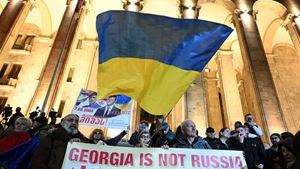
They return to the strict post-election news, if the pro-Russian Georgian Dream party won the elections in Georgia last Sunday with 54 percent of the votes, the opposition does not recognize the result, denouncing electoral fraud and intimidation throughout the country. In fact, the general prosecutor’s office has opened an investigation into alleged electoral fraud in last weekend’s parliamentary elections after complaints from the pro-European opposition United National Movement, made up of four parties and led by the President of the Republic Salome Zourabichvili who took 37.5% of the preferences. However, the alarm was strongly echoed by some independent observers who denounced intimidation and fraud in numerous polling stations in the country.
An example: in the city of Marneuli, south of the capital, an investigation was opened after the publication online of a video showing several voters filling the ballot box with ballots already filled out in support of the Georgian Dream, while electoral officials tried to prevent it.
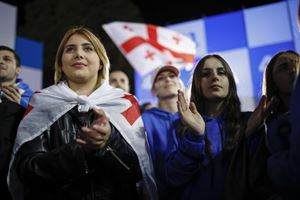
The results of that polling station were deemed invalid, but similar incidents were also reported in other cities, as well as attacks on independent observers and Georgian and especially international journalists who testified that some voters had been taken to the polls by registered members of the pro-Russian party and that in some polling stations people voted and then showed their ballot to the president of the polling station or to the Georgian Dream coordinator present.
«If in any case it will take weeks, if not months to ascertain any irregularities», adds the Georgian writer Ruska Jorjoliani who debuted in 2015 with her first novel in the Belpaese Your presence is like a city (Corrimano Edizioni) which was followed by Tre alive, three dead (Voland) «what we can say for sure today is the Georgian Dream, which has governed the country since 2012 and was born as a social democratic party. A movement that I myself have believed in for years. But in recent years it has become closer to Russia and has adopted increasingly authoritarian methods of government last May in the approval of the so-called “foreign agents law”, a law that bears the same name and is in fact very similar to that approved in Russia to silence the opposition, which forces NGOs that receive foreign funds to register in a special register. A sort of proscription list of political opponents».
The law had been strongly contested by the population and had taken to the streets in large numbers «but the well-attended protests, also supported by the President of the Republic and leader of the opposition, which Sogno Georgiano had tried, in vain, to block, did not transform into electoral consensus » comments Jorjoliani. The situation had led many inside and outside Georgia to think that this October’s elections would – for the first time – give the opposition its first and real chance of victory.
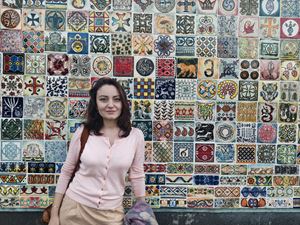
«This is also because almost the entire Georgian population is in favor of the country joining the European Union, something in which Sogno Georgiano is increasingly less interested. Indeed, leveraging the fear that what is happening in Ukraine could happen to us too, the Georgian people were called to make a clear choice rather than to vote, and against our own conscience: after years of westernization and welcoming thousands of Russians who moved to Tbilisi because they do not want to live in Putin’s Russia or because they wish to avoid ending up at the front in Ukraine, this vote returns us docile to the sphere of influence of the “Russian world”. Until we find ourselves with a puppet government of the dictator in Moscow. In the silence of the Europeans distracted by the propaganda of the risk of escalation on the Ukrainian front”, concludes Ruska Jorjoliani.


